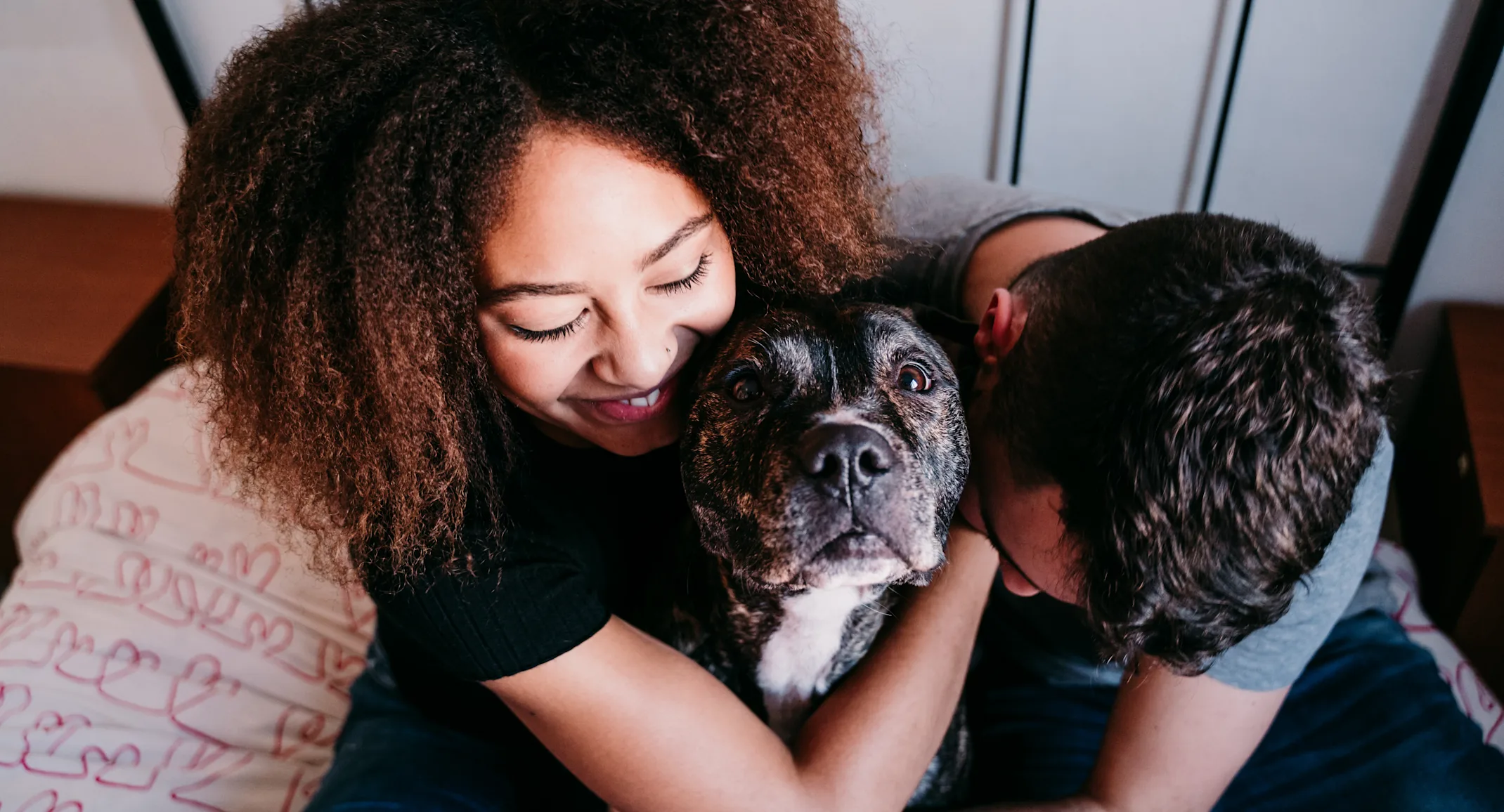Anxiety In Dogs
General

It’s important to recognize that dogs, much like humans, can experience fear and anxiety. Any dog can become anxious, and while it is true that some breeds are a little more prone to anxiety than others, a traumatic event, lack of socialization, illness, pain, overheating, and of course separation from its owner can all be sources of anxiety.
A dog will give off clues when it is feeling anxious so learning not only what the signs are but what your dog’s signs are can help you have a healthier, happier pup. One of the most difficult ways that anxiety affects a dog is through behavior. Chewing on things, digging, barking a lot, growling, shivering, door dashing, not eating, more frequent urination, whining, escaping the yard, restlessness, and even aggressiveness are all common signs of anxiety in dogs that you are probably already familiar with. However, there are some signs that are not as apparent:
Yawning – Frequent yawning is a sign of stress in dogs. Many times, you will see yawning accompanied by lip licking and panting. Both of these are classic anxiety signs as well.
Excessive Licking – Dogs lick for a lot of reasons but when that licking becomes excessive, it usually means there is a problem. Licking triggers the dog’s brain to release endorphins which ease anxiety and make them feel better.
Whale Eye – When you can see the whites of your dog’s eyes that is called “whale eye.” When you approach a strange dog, look at its eyes. If you can see the whites, step back. The animal is feeling anxious and may become unpredictable.
Panting – Panting, especially when it isn’t hot, is another sign of stress or anxiety. Many dogs will pant when they are hurt or sick as well as when they are afraid. This kind of panting is called “stress panting.”
Disconnecting – If your dog suddenly disconnects from you, another dog, or a group situation that usually means it is feeling overwhelmed or anxious. If you are playing with your dog and it suddenly walks away to go to its bed, let it go. It is trying to manage its anxiety. Don’t try to pick it up or hug it unless it comes to you and wants to be picked up. Just let it take the break it needs.
Watch your dog and learn the clues it gives when it’s anxious. This can help you identify the causes of your dog’s anxiety and let you take steps to relieve their stress. Long term stress can cause many health problems for dogs. Just like with humans, anxiety puts pressure on the organs such as the heart. It can also leave the dog feeling isolated and alone because its owner is upset so it doesn’t have the support it needs to work through the anxiety.
When you realize that your dog suffers from anxiety, there are some things you can do:
Stay calm – Your dog takes cues from you, especially if you are bonded. If you are upset or stressed your dog will likely be as well. Try to stay calm and avoid yelling.
Provide a safe space – Put a bed or kennel in a quiet place, away from the busy areas of your home. When your dog gets overwhelmed or stressed, quietly and calmly direct them to go to their space.
Know when to back off – Too often dog owners will try to pick up their nervous pup and hug or comfort it. Those actions meant to help could actually increase the anxiety. Sometimes they just need a break and to be left alone.
Find the cause – Some dogs are naturally high strung, but sometimes there’s reason to be anxious. Pay attention to your dog, your surroundings, and what your dog was doing when it became anxious. It could be a sound, a situation, or any number of things. Then try to minimize the cause or eliminate it.
Doggie Daycare – Doggie Daycare is a great way to help ease separation anxiety and socialize your pet with other dogs and people. Lafayette Veterinary Care Center offers doggie daycare 7 days a week at The Playground. We invite you to come by for a tour!
Training – Training builds confidence in dogs and a confident dog is often a less anxious dog. Work with your pet on basic commands every day or sign them up for one of our training options. Our certified trainer can point you in the right direction as to which option will work best for your family and beloved canine companion.
Ask the Experts-Lafayette Veterinary Care Center veterinarians have completed countless hours of research and training to learn how to positively impact your dog’s physical and mental health. They may suggest medications, nutritional supplements, or other remedies and advice to help your pet feel better.
Remember, emotional well-being is vital for humans and dogs alike. It requires consistent, positive effort to maintain mental stability. At Lafayette Veterinary Care Center, we are sensitive to the needs of our anxious guests and try to help ease their stress through our certified fear-free techniques. Contact us today to learn more about how to help your pet with their anxiety.

